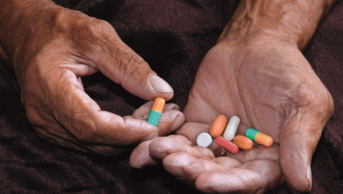
Shutterstock.com
Some 79,000 emergency admissions to hospital involving care home residents could be avoided in one year with better preventative primary care, an analysis from NHS England and the Health Foundation has found.
The report, published on 25 July 2019, investigated hospital admissions of care home residents aged 65 years and over in 2016/2017. It analysed how the ‘Enhanced health in care homes’ initiative, which includes enhanced primary care support, such as medicine reviews, impacted the residents’ health.
The analysis found that 41% of the estimated 192,000 emergency admissions to hospital from care homes were for “potentially avoidable” conditions, such as chest infections, pressure sores, urinary tract infections and fall-related fractures.
It added that if the patient had received “better care at an earlier stage of the care pathway”, admission to hospital could have been prevented.
Adam Steventon, director of data analytics at the Health Foundation, said the report “highlights that better preventative care may help to reduce unnecessary emergency hospital admissions — for example, some fractures may be avoided with appropriate risk assessment and falls prevention”.
Claire Anderson, chair of the English Pharmacy Board at the Royal Pharmaceutical Society, highlighted the importance of the role of pharmacists in preventing falls in care homes, as well as in conducting medicines reviews.
“Falls often lead to emergency admissions,” she said. “Pharmacist-led medication reviews have been shown to lead to a reduction in the number of falls in older people. I believe a pharmacist should be involved in assessing the falls risk from the medicines residents are taking and adjust them accordingly.”
She added that many care home residents “are not getting the best from their medicines or are taking medicines which are doing them more harm than good, and may be reducing their quality of life”, with pharmacists able to provide “the right medicines at the right time and in the right way to maximise the benefits of the medication”.
Anderson referred to a study published in 2009, which found that care home residents took an average of eight medicines, with at least one error occurring in 70% of cases.
The findings come as the ‘Enhanced health in care homes’ scheme, which was originally launched in 2016 as one of five new models of care, is expected to be rolled out nationally as part of the NHS Long Term Plan.


